Dr Ashok Baindha participated in the workshop ‘Rural Community Development for Sustainable and Inclusive Growth’, organized at Nadi, Fiji, from 18 to 22 November 2019. He shares his experiences from the event here.
CONTEXT
Eradicating poverty in all its forms is an indispensable requirement for sustainable development of nations, irrespective of a country being poor, rich or middle income. To this end, there must be promotion of sustainable, inclusive and equitable economic growth, creating greater opportunities for all, reducing inequalities, raising basic standards of living, fostering equitable social development and inclusion, and promoting integrated and sustainable management of natural resources and ecosystems. Looking forward to the mutual cooperation between member countries of Asia and Pacific to achieve sustainable developmental goals, Asian Productivity Organization sponsored a workshop at Nadi, Fiji, from 18-22 November 2019 with the theme ‘Rural Community Development for sustainable and inclusive growth’. It was organized by National Training & Productivity Centre (NTPC), Fiji National University (FNU), Nadi, Fiji.
The objectives of this workshop were
- To promote the importance of sustainability and inclusiveness in enhancing productivity for rural community development.
- To review global trends and emerging approaches in addressing opportunities and challenges in establishing sustainable rural economies and inclusive social protection for rural communities; and
- To share successful cases of rural community revitalization and discuss the roles of public and private sector in strategic action development.

PROGRAMME
Day 01
Opening Session
Director, National Training and Productivity Centre (NTPC), Fiji National University (FNU), welcomed the participants. The Chief Guest, the Permanent Secretary for Ministry of Rural and Maritime Development, Mr. David Kolitagane, noted that properly addressing rural development can help government and development institutions address the fundamental challenges faced in eliminating poverty and hunger as majority of poor still live in rural areas and access to key infrastructure and services is still biased against rural people. Jisso Yun (Programme Officer of APO) urged the participants to actively participate in the workshop.
Session 1: Framework and Perspectives of “Sustainable” and “Inclusive” RCD
Dr. Shinichi Shigetomi, Professor, International Studies, Meiji Gakuin University, Japan, showed what ‘framework and perspectives of sustainable community development’ are where he pointed out three levels of sustainability i.e., household, local organization and local community. Sustainability can be achieved through coordination between individual and organizational process towards problem solving process. Prof. Shinichi said that to make the self-organizing process sustainable, we need to identify the local social system of a community instead of advocating the significance of community participation. To achieve sustainable RCD, monitoring local people’s responses to development projects should be the first step for development planners and practitioners to identify the local system of sustainable RCD.
Prof. Shinichi emphasized participation of target groups in rural community development projects and consequences of exclusion of target groups. He explained the coping strategy for exclusion as:
- Make more than one organization for the same purpose
- Make different types of organizations
- Bring community in developmental activities
- But sometimes, community itself may be the cause of exclusion due to:
- Legal constraints (in case the community is an administrative unit)
- Unequal political power distribution
- Conservative traditional elites
Session 2: Enhancing sustainable rural economics
Mr. Etienne Dustin Salborn, founder of the Social Innovation Academy (SINA), Uganda, presented on ‘Sustainable rural economy revitalization-Creating employment through rural residents-initiated projects’. He showed the stages of empowerment i.e. confusion, emerging, concentration and linking with various successful models such as bottles and bricks used for construction of houses, roofing with old car tires, egg shells and plastic bags used for paving floor, environment friendly
unburnt-interlocking bricks, grass-stem as a substitute for plastic straw pipe, bio-sand as community water filter, organic mosquito repellent soap, women cooperatives for re-usable sanitary pads. Mr. Etienne stated:
- Rural communities can be empowered to create their own solutions,
- Ideas already exist in rural communities and we have to make them reality,
- The youth benefit from a safe environment when they are given responsibilities and can try new solutions with remarkable ideas,
- Challenges can become competitive advantages and social enterprises offer a sustainable bridge between NGOs (charity) and business (profit)
Dr. Ruth McAreavey, Associate Professor from New Castle University, United Kingdom, delivered a lecture on ‘Enhancing engagement of small farmers and agri-SMEs in agri-food supply chains’. Dr. McAreavey highlighted the problems of modern food system, effect and implication of climate change on agri-production, demand for food in coming years, the food paradox (over-weight and under-nourished), land degradation and sustainable land management, mega trends in rural societies (i.e. migration and ageing, technological innovation, urbanization, global shift in production, etc.), intensive and industrialized agriculture especially in poultry farming (monoculture farming that disrupt ecosystems), issues in food systems (health, fossil fuel dependency, food security, food sovereignty, product attributes, environment, local supply chains, ethics and food, trades and tariffs; economic blocs) and alternative food systems (organic, community supported agriculture). At the end, Dr. McAreavey said that with population growth, the demand and preference for food is increasing and changing, while making traditional agriculture more intensive and industrialized.
Day 02
Session 3: Promoting social inclusiveness and taking action
Dr. McAreavey explained poverty in rural context as ‘a lack of material resources necessary to live a decent life’ (McAreavey and Brown, 2019) with lack of access to material resources, typically income, and poverty is not the same as inequality. She mentioned that world’s richest 1 percent, those with more than $1 million, own 45 percent of the world’s wealth. Adults with less than $10,000 in wealth make up 64 percent of the world’s population but hold less than 2 percent of global wealth. She said inequality is not inevitable – it is a political choice and concrete steps should be taken to reduce it. By taxing wealth more fairly, enough money could be raised globally to ensure that every child goes to school and no one is bankrupt by the cost of medical treatment for their families. She emphasized that giant roadblocks to welfare were inequality, insecurity, debt, stress, precarity, automation and populism. She showed what actions can address rural poverty and its exclusion, providing some options for intervention (universal basic income, mainstream welfare programmes and dedicated rural developmental programmes) and needed political interventions (sound political will, economic buoyancy and clear understanding of the challenge). She also argued that rural development is an ongoing process of change leading to improvements for groups of people, with a strong emphasis on participation. Rural development through participation may result in democratic renewal, community empowerment and economic development. It is not a homogenous concept and has various degrees of participation and unequal impacts of participation.
Ms. Arti Pillay from FNU, pointed out that Fijians are facing severe health issues due to excessive use of fast food, hypertension and obesity from excessive salt intake. She also said that Fiji is facing problems like inequality in distribution of resources on the two major islands of Fiji and migration from one island to another and to neighbouring countries including New Zealand and Australia.
Dr. McAreavey presented on ‘Beyond the local: Achieving balanced development’ in which she highlighted the importance of education, training and vocational skill development in rural community development. She mentioned that agricultural productivity is 7.4 per cent higher on average for a farmer with four years of elementary education and this effect is stronger in an environment undergoing modernization than in a traditional environment (as per findings of Lockheed et al. 1980). She also said that promoting technological change in rural areas will be vital for enhancing food security and protecting the environment. During the presentation Dr. McAreavey explained that access to finance, education and markets influence the success of entrepreneurial activities.
Day 03
Session 4: Field Visits
On the third day, site visits were conducted as per schedule, wherein, participants from 14 countries with resource persons went to Noni farm, Sunil’s Farm and a traditional Fijian village.
The first visit was organized to Wang Chao Farm, a Noni (Morinda citrifolia) farm, maintained and managed by a Chinese national, who is producing Noni in around 100 acres of land and providing employment to nearby settlements. Mr. Wang is an innovative farmer, as he grows Noni plants in Fiji owing to favourable environmental conditions and minimum use of organochlorides and phosphates as insecticides/pesticides. After production, he sends the fruits to China for further processing as juice, dry power, face-pack, etc.
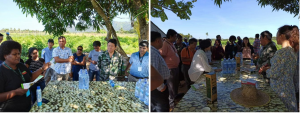
Visit at Noni Farm
The second visit was hosted by Mr. Sunil to a model agricultural operation on previously unused land now producing cash crops as per market demand. He is producing in open land and utilizing river as source of irrigation with traditional agricultural practices. As he mentioned, along with routine farming exercises, he is now investing in construction sector keeping in view that profit margin is lower in agriculture than other sectors.
The third was to Viseisei, a traditional Fijian village where women use local resources to create and sell handicrafts and generate household income. Fijians are still following the tribal customs with Chief as head of the tribal community.

Visit to Traditional Fijian Village
Day 04
Session 5: The Role of Government in Sustainable and Inclusive RCD
Mr. Etienne gave marshmallow and helium sticks to build a tower as high as the group can, just to provide first hand learning experience about the importance of goal setting and efforts to achieve a goal.
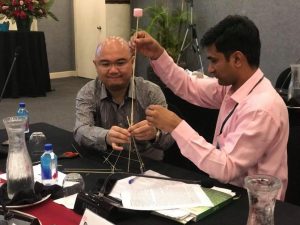
Tower Building Exercise
He gave insight on the social business initiatives of the European Union, which include:
- Making government policies more accessible for social enterprises to obtain funding,
- Increasing the visibility of social entrepreneurship and
- Creating legal environments that are friendly for social enterprises.
- He also highlighted certain studies and findings on social enterprises and ecosystems in Europe, these are:
- Lack of standard definition and common understanding on social enterprises,
- Lack of specialized social business development services and
- Lack of a social enterprise legal framework.
All these affect the funding and income generating opportunities of social enterprises and make it difficult for entrepreneurs to get started without a legal framework. During presentation, Mr. Etienne quoted Buckminster Fuller, saying
“You never change things by fighting against the existing reality. To change something, build a new model that makes the old model obsolete.”
He explained various models of social enterprise in Europe and Africa like Rural Incubator in Spain, Buutzsorg–Transforming the Rural Home Care System of Netherlands, NUCAFE– Revolutionizing the Coffee Sector from Uganda, Hofgründer-Rural Entrepreneurship Farm Matchmaking of Germany. He finished his presentation with concluding remarks:
- Government policies should enable ecosystems with legal frameworks for social enterprises,
- Encourage matching funds, competitions, co-working spaces and recognitions,
- Governments should give incentives and support community of social entrepreneurs to create a future for themselves and
- Look out for social enterprises advocating for policy changes, as they might have a better model to the existing reality.
During the same session, Dr. Shinichi Shigetomi informed that the per capita income of farm households are higher than non-farm households but Japan is facing depopulation and ageing in villages i.e. like other countries people are migrating from rural to urban areas because of little economic opportunity in villages. To solve the problem of migration, rural communities took certain steps to create new economic opportunities within villages, introduced outside human resources and tried to revitalize not just agriculture, but other sectors as well. Along with rural communities, Government of Japan implemented certain programmes and projects to minimize migration and to revitalize rural community, which include:
- Human resources to support rural development such as Community-Reactivating Cooperator Squad and Village Development Advisers
- Provided subsidy to disadvantaged rural areas and
- Community development councils
Japanese rural community development has long been initiated by local people and it has been quite ‘participatory’ in its nature but the fundamentals of such local initiatives are now rapidly fading out. So, it needs inputs of outside agencies, not just subsidies like in the past, but also human resources that bring population, new ideas of economic opportunities, and vital livelihoods options to the villages. The government has recognized the problems, especially those in disadvantaged areas, and started several projects assisting rural and urban youth. Japan faces the same challenges that many other developing societies face–how can outside agencies facilitate popular participation?
Session 6: Country Paper presentation
Session 6 started with presentations from various participants from different countries in alphabetical order.
- Bangladesh: Shyam Sundar Saha, Programme Head, Integrated Development Programme, BRAC, presented ‘Inclusive and Sustainable Growth in Rural Communities: An Approach’.
- Cambodia: Symakara Yours, Chief Officer at the Office of Non-Formal Education, at the Ministry of Rural Development, presented on ‘Increase income generation through cucumber cultivation in Punsang Village’.
- Republic of China: Hui-Yu Wang, Junior Specialist, Taiwan (R.O.C.), presented on ‘Developing a New Rural Paradigm- A Framework 2.0 for Rural Development’.
- Fiji: There were six participants from Fiji; they jointly presented their country presentation in which they showed major rural development programmes in Fiji.
- India: I presented a country presentation on rural community developmental programmes in India. I also presented the initiatives taken by Rajasthan University of Veterinary and Animal Sciences (RAJUVAS), Bikaner, where I work. A summary of the presentation:
- Training rural youth in livestock farming advances, dairy farming, small ruminant farming (sheep and goat), rabbit and pig farming, fishery and entrepreneurship development in milk and meat processing
- Awareness programme on zoonotic diseases for rural communities.
- Diagnostic facility for farmers at each district. Laboratory diagnosis of blood, urine, faeces/stool, skin, milk, feed and fodder.
- 24-hour toll free number (1800-180-6224)
- Advisory services to farmers (electronic and printed): Pashu Palan Naye Aayam (monthly booklet for farming community), SMS and RAJUVAS on mobile as mRAJUVAS (a mobile platform of University)
- Farmers’ fair at district and block levels to acquaint farmers about latest techniques and technologies in livestock farming
- Demonstration of innovations in animal husbandry: Hydroponics, Urea-Molasses-Mineral-Block (UMMB), Pallet feed, Azolla Cultivation, Silage making.
- Dheene Re Baateiya: Broadcasted from 17 All India Radio (AIR) stations of Rajasthan Thursdays from 5:30 pm to 6:00 pm.
- Mera Goan-Mera Gaurav (My Village-My Pride): A team of scientists from different departments visit adopted villages to resolve problems and provide advice.
- Smart Village of University: Conducting routine programme in collaboration with various line departments.
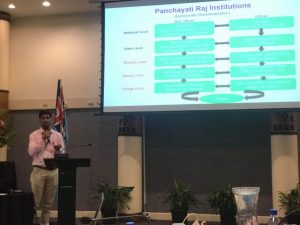
- Indonesia: Herman Syofiri Yasin, Senior Financial Adviser, Jakarta, presented a case study of a livestock cooperative in Lampung Province on ‘Indonesian smallholder’s commercial cattle breeding businesses’.
- Islamic Republic of Iran: Katayoun Sepehri, Consultant of Ministry of Agriculture, Tehran. Ms. Katayoun presented on rural women entrepreneurship in Iran
- Mongolia: Anar Bayarsaikhan, Advisor to Mayor at Mayor’s office in Orkhon Province, presented on ‘Rural community development programme and initiative of Orkhon province, Mongolia’.
- Nepal: Ritu Pantha, Under Secretary, Ministry of Industry, Commerce and Supplies, presented on ‘Rural Community Development Programme of Nepal’.
- Pakistan: Nadia Naeem Qureshi, Senior Specialist, Urban Planning and Architecture, Lahore, presented on ‘Rural Community Development Programmes of Pakistan’.
- Philippines: There were two participants from Philippines and they jointly presented their country paper.
- Sri Lanka: Jayasuriya Arachchige Damith Roshan, Additional Director (Development), National Productivity Secretariat, Battaramulla, presented on ‘Rural community development (RCD) in Sri Lanka’.
- Thailand: Three participants from Thailand jointly presented on ‘Rural Community Development Programmes in Thailand’.
- Vietnam: Pham Thi Nham, Director, Department of Standards, Metrology and Quality of Lam Dong Province, presented on ‘Rural Community Development and Inclusive Growth in Vietnam’.
Day 05
Session 7: Group Discussion and Presentation
On Day 02 of the workshop, Dr. McAreavey had given a task. This task was meant to draw on our practical knowledge, experience, expertise, and on the workshop itself, to help each group present a case study. All the groups presented their cases. After group presentations, certificates were distributed.
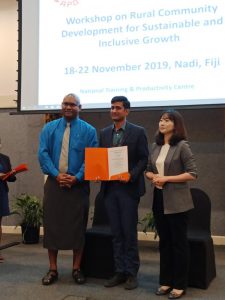
Receiving Participation Certificate from officers of APO and NTPC, FNU
MY IMPRESSIONS
Majority of the countries around the globe are focusing on rural community development that is sustainable and viable. The method of implementation of these community developmental programmes varies across countries and is in accordance with the rural communities. Differences in geography, demography, economy and development patterns affect rural areas in highly specific ways, while the Asian Productivity Organization (APO) members are striving to achieve sustainability. Migration is a major threat facing many countries as people migrate from rural areas to urban areas for employment livelihood.
I feel that rural community development for sustainable and inclusive growth can be achieved through:
- Good political will right from programme formulation, implementation and monitoring
- Active Involvement of public and private agencies for rural development
- Contribution of donor organisations in infrastructure development in rural areas
- Cooperation and collaboration between funding agencies, implementing agency and rural community
- Availability of basic facilities (health, water, food, education, connectivity, etc.) in rural areas
- Restoration of degraded land
- Government, semi-government, non-government and research organizations should analyse the rural situation, available resources, attitude of rural community towards development programmes so that fruitful results can be achieved
- Focus on women entrepreneurship
- Quality education and training for rural communities.
It was my first experience of participating in any international workshop. I felt that such programmes not only improve the performance of participants, but also help in knowledge sharing between member countries. I would like to congratulate NTPC, FNU, Fiji and APO for successfully organizing the workshop. I also convey my sincere thanks to Asian Productivity Organization (APO), National Productivity Council (NPO), India, and National Training & Productivity Centre, Fiji National University, for giving me the opportunity to participate in the workshop. Also, I am grateful to AESA for encouraging me to share and help me in publishing this meeting note.
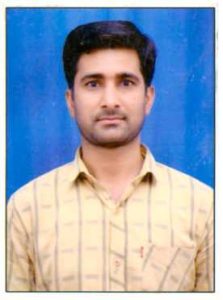
Dr Ashok Baindha, Assistant Professor, Department of Veterinary and Animal Husbandry Extension Education, Post Graduate Institute of Veterinary Education and Research (PGIVER), Jaipur (Rajasthan University of Veterinary & Animal Science, Bikaner), Rajasthan (INDIA) (Email: drashokbaindha@gmail.com)



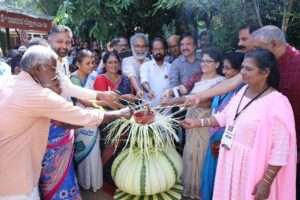

Add Comment